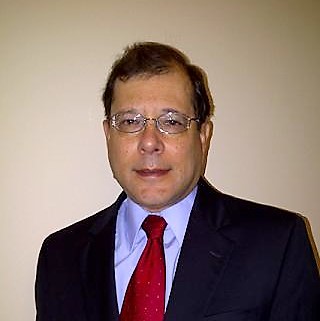AOPA has always supported volunteer flight activities, whether as part of a relief effort during weather-related emergencies or in support of other charitable pursuits. General aviation pilots, aircraft, and airports can be a tremendous national asset during times of crisis. AOPA applauds the efforts of those who volunteer to perform public benefit flying and other humanitarian efforts. Because of the recent hurricanes, AOPA’s Pilot Protection Services – Legal Services Plan staff has received an increased number of calls from individuals contemplating assisting in relief efforts. As with any flying, it’s always a good idea to be aware of the applicable regulations. The Federal Aviation Administration’s views of compensation, including reimbursement of any expenses, are not exactly self-evident and most of us do not receive any education about volunteer flying as part of our private pilot ground school. The following article by Jeffrey S. Kahn, Esq. contains an overview of how Volunteer Pilot Organizations work as well as some of the pitfalls to avoid. As a Legal Services Plan participant, you have access to in-house legal staff as well as a network of panel attorneys to help answer any of your questions about public benefit flying. - Scot Shealer, Senior Director, AOPA Pilot Protection Services

Philadelphia-area panel attorney, Jeff Kahn, is an instrument-rated private pilot who owns a C-182 based at Wings Field. He became interested in aviation law when he was asked to help establish Angel Flight East by its founder, Harry Morales. Since then he has been a director of Angel Flight East and acts as legal counsel. He is also director and treasurer of the Air Care Alliance, a charity serving volunteer flying organizations across the nation.
One of the most rewarding things that a pilot can do is to use his or her flying skills to help others or the community at large. Disasters like hurricanes Harvey and Irma have always brought out the best in us and large numbers of pilots are now volunteering to support relief efforts. Even in non-disaster times, volunteer pilots regularly fly patients to treatment, rescue animals, support environmental efforts, and serve many other public needs.
Typically, these flights are arranged by Volunteer Pilot Organizations (VPOs). VPOs are essentially travel agencies that match volunteer pilots with flights to meet various needs. They raise money to support their operations, but, with limited exceptions, all expenses of the flights are borne by volunteer pilots. The Pilot in Command (PIC), not the VPO, is the operator of these flights and so long as the PIC receives no compensation, these flights are perfectly legal under Part 91.
VPOs cannot generally operate flights because that would require them to obtain a charter certificate. VPOs also cannot pay, and pilots cannot accept payment for, flight expenses. Note however, that some VPOs have obtained exemptions from the Federal Aviation Regulations (FARs) that specially allow them to pay, and the pilots to receive, reimbursement for fuel expenses. These exemptions impose stringent safety requirements but are certainly beneficial for some pilots.
In some cases, there is a limited ability for a pilot to share costs with passengers. A pilot and co-pilot may share a common purpose of providing a needed service and therefore can share the costs of a flight under 61.113(c). However, flight cost sharing with medical patients is not permissible because the pilot and patient do not share a common purpose for the flight.
With the best of intentions, people and organizations are searching for other ways to help defray the pilots’ costs so they can help even more. But are they legal?
THE ANSWER IS NO!
Private pilots are prohibited from receiving compensation for flights and, to the FAA, this means that you can receive NOTHING of value except for: (1) logging flight time and (2) taking whatever tax deduction the IRS allows. The FAA is very supportive of charitable flights but, rightfully, has concerns any time money comes into the picture, and then the FAA requires a higher level of safety.
Not paying an expense of a flight is the same thing as receiving compensation, and because these flights involve public carriage, even commercial pilots cannot accept compensation unless the flights are conducted under Part 135.
This is harsh, but accepting money from friends and family, internet fundraising sites, or even a VPO that has not obtained a fuel reimbursement exemption places your pilot license at risk. It also places you at financial risk because your insurance carrier may be able to avoid coverage if you are conducting what are considered commercial operations which are not covered under your policy.
Is it worth defending an FAA enforcement action against your pilot’s license to find out whether a different opinion could prevail? Remember, your ticket is on the line, not that of the person giving you advice.
You cannot go wrong by paying all the costs of your charitable flights or receiving reimbursement only in compliance with an exemption granted by the FAA.
There is no justification for violating the FARs, even to do good works, and you will not be able to help anyone if your pilot certificate has been suspended or revoked. Also consider that an incident resulting in harm from a non-compliant pilot could result in future regulations that might jeopardize every pilot’s ability to fly for charity.
So I do urge every pilot to use his or her skills to benefit others, but to do so safely and legally!
Resources:
Every volunteer pilot should take the AOPA Air Safety Institute’s online Public Benefit Flying course.
The Air Care Alliance maintains a list of Volunteer Pilot Organizations at http://www.aircarealliance.org/directory-groups.
A list of VPOs with fuel reimbursement exemptions can be found at http://aes.faa.gov/AES.asp by entering 61.113(c) in the “Regulation” box.





